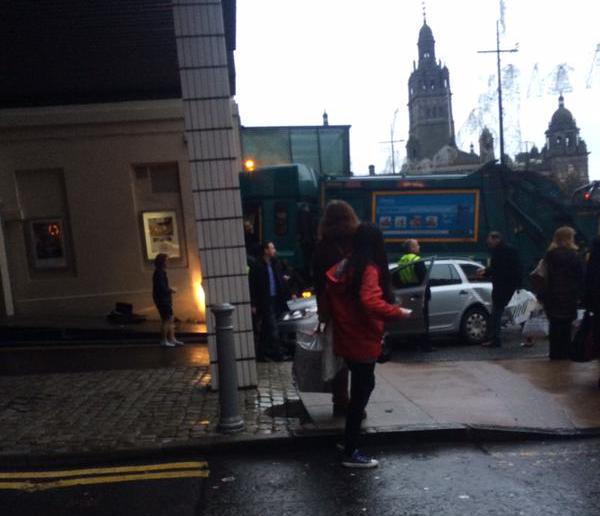
The comments came this week from walking charity Living Streets, which claimed that the inquiry into last December’s crash focussed too heavily on the individual driver involved in the incident and could have looked more widely at waste collection procedures on city streets.
Last year a waste collection vehicle operated by Glasgow city council crashed in Queen Street close to the city centre, killing six people and leaving a further eight with serious injuries (see letcrecycle.com story). The crash occurred after the driver of the vehicle collapsed at the wheel.
Following the incident, this week (7 December 2015) a judge overseeing the inquiry into the crash concluded that strict checks should be put in place to assess the health of drivers employed by the council after it was found that the driver had ‘mislead’ doctors over his health (see letsrecycle.com story).
Pedestrian safety
Despite this conclusion, Stuart Hay, Living Streets’ Scotland director argued that better medical checks eliminate only one risk factor to pedestrians from waste collection lorries and other heavy goods vehicles (HGV).
With six crashes involving waste collection vehicles and other HGVs and pedestrians recorded in Scotland last year, Living Scotland remains concerned about the number of large vehicles manoeuvring in city centres at busy shopping times.
“One aspect to be looked at is the quality of the vehicles to ensure that they are equipped with functioning cameras and mirrors and are visible,” said Mr Hay, “but also the frequency, timing and routes used by waste trucks in busy town centres merits further investigation.”
With regards to the waste management sector, Mr Hay stated that while Living Streets understood that waste collections are an essential service, councils and contractors could look at ‘streamlining’ services to reduce the number of vehicles on the road.
“With waste segregation, there are multiple contractors. In the city centre, you sometimes have six different bin trucks in one hour. If the business is organised differently, perhaps we could get this down to one or two which would benefit pedestrians and businesses alike,” added Mr Hay.
Action
Living Streets is also calling on Glasgow city council to create a management plan to reduce the risk of similar incidents in future.
“This is not a knee-jerk reaction, but we think that a council meeting will be a good starting point to prevent future accidents occurring,” said Mr Hay.











Subscribe for free